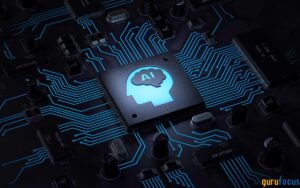Lila Ibrahim, COO of Google DeepMind: ‘Technology Gains Meaning Through Enhancing Lives’

Inside Google DeepMind: A Look at AI’s Pioneers
A Glimpse into Google DeepMind
Located in the heart of London’s King’s Cross, the Google DeepMind offices evoke an atmosphere of innovation and secrecy. This hub of artificial intelligence excellence employs some of the world’s top scientists, whose work plays a crucial role in shaping the future of technology. With modern, naturally illuminated rooms and stringent security measures, the environment is designed to foster groundbreaking research away from prying eyes. Employees often find their movements quietly monitored, even on routine trips to the bathroom.
The Visionary Behind DeepMind: Lila Ibrahim
Lila Ibrahim, the Chief Operating Officer (COO) of DeepMind, embodies a unique blend of American warmth and British formality. With her corporate card, she effortlessly navigates through various security checkpoints. Having joined DeepMind in 2018, her leadership has been instrumental in steering the company towards responsible AI developments.
Raised in Indiana by Lebanese immigrants, Ibrahim has experienced being a minority in a largely male-dominated field. After graduating from Purdue University with a degree in Electronic and Electrical Engineering, she began her career at Intel, where she contributed to the design of Pentium processors. Throughout her journey, she has remained rooted in her belief that technology should enhance people’s lives.
The Impact of AI on the World
AI has emerged as one of the most transformative technologies of our time, primarily due to advancements in computing power and data processing capabilities. According to Ibrahim, various global challenges urge the need for AI solutions. The mission at DeepMind emphasizes harnessing AI for advancing scientific research and addressing complex issues.
Addressing Concerns Surrounding AI
While the potential of AI is vast, concerns over its misuse and inherent risks must not be overlooked. Ibrahim notes that biases and misconceptions often accompany AI technologies, which could perpetuate societal stereotypes. Looking forward, the challenge lies in ensuring that AI remains under human control, with robust governance and responsible development practices guiding its trajectory.
Daily Responsibility at DeepMind
At DeepMind, creating a culture of responsibility is paramount. The organization prioritizes governance, safety in research, and an understanding of the impact technology has on society. Regular evaluations help in identifying potential biases while testing models to ensure they meet safety standards. This structured approach is crucial in the AI field, especially as technologies evolve rapidly.
Collaborative Approach to Safety
To ensure its AI tools like AlphaFold—which predicts protein structures—are both beneficial and safe, DeepMind collaborates with various experts, including Nobel laureates. This interaction seeks to identify risks beforehand while optimizing the opportunities these technologies provide.
The Dynamics of AI Development
The quick evolution of generative AI poses new challenges. For instance, after OpenAI launched ChatGPT, Google accelerated the release of its own generative AI, Bard. This shift was partly influenced by the market’s readiness for such technology, prompting Google to reassess and refine its approach to generative AI models.
Balancing Innovation and Ethical Concerns
Despite the excitement surrounding AI’s advancements, industry leaders like Ibrahim express caution. She was among those who signed the "Extinction Risk Statement," which warns against the potential dangers of AI. Such duality—hoping for a transformative impact while recognizing existential risks—forms the core of guiding principles in AI development.
Scientific Breakthroughs through AI
DeepMind’s AlphaFold project has revolutionized how scientists understand proteins, enhancing their research capabilities in various fields, including healthcare and environmental science. By expanding the range of known materials, DeepMind is poised to foster breakthroughs in areas such as electric vehicle technologies and climate science.
Commitment to Diversity and Sustainability
Ibrahim emphasizes the importance of cultivating a diverse workplace. Efforts to increase representation, particularly among underrepresented groups in tech, remain ongoing priorities. She also highlights the company’s focus on reducing its environmental footprint by creating efficient AI models and optimizing Google’s data centers to consume less energy.
The Future of AI
AI technology at DeepMind represents just the beginning of a long and intricate journey. While the organization pioneers advancements that could transform various sectors, it remains vigilant about the possible implications of such powerful tools. The ongoing development of AI carries the promise of revolutionizing not only technology but also the very fabric of society.






